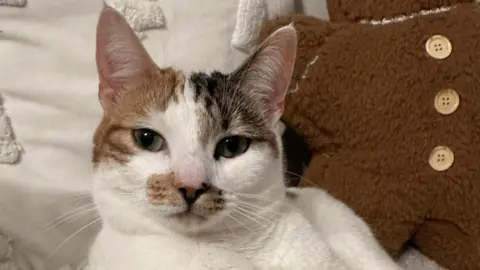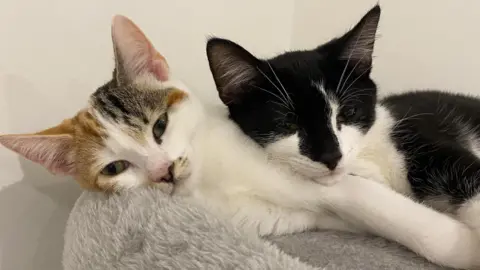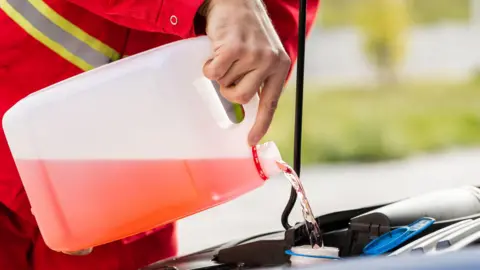Anti-freeze warning after cat deaths
A pet owner says her family is "heartbroken" after their cat died of suspected anti-freeze poisoning.
Taimar Nicholls, from Coventry, was told by the vet that her two-year-old cat, Nala, would have to be put down.
There is no indication of any foul play, but Ms Nicholls wants to speak out so that others know the signs to look out for.
Pet charity the RSPCA has issued advice to pet owners and motorists but says deliberate poisoning of animals is rare.
Ms Nicholls said Nala wasn't herself and had been displaying unusual behaviour, before her condition took a turn for the worse at the end of March.
"Our poor baby went through hell," she recalled.
 Taimar Nicholls
Taimar NichollsThe pet owner added she had since spoken to other people from the Allesley area of the city whose cats had also consumed the anti-freeze.
It's unclear how the felines came to be poisoned, but Ms Nicholls claimed there were at least four cats in total who had died.
She added: "We may never know what caused these four babies to suffer but we can try and prevent any more cats from going through this awful ordeal.
"The other families, and my own family, are all completely heartbroken."
 Taimar Nicholls
Taimar NichollsAidin Walls, from Broad Lane Vets, treated Nala.
She said anti-freeze causes kidney failure in cats. It can be found in radiator coolant and car screen wash.
Ms Walls added cats can appear to be acting "quite drunk" if they have been poisoned and urged owners to be vigilant.
"They can be uncoordinated, they can be drinking more and they can be quite lethargic," she said.
"If there are any changes like that, call us immediately and come down."
 Getty Images
Getty ImagesJohn Grant, RSPCA chief inspector for the West Midlands, told the BBC that signs of poisoning can be seen anything from 30 minutes after an animal has ingested the chemical.
"We'd always like to remind people to be mindful... and for motorists to be careful and ensure chemicals, like anti-freeze, are stored securely," he said.
"If you have any hazardous materials in outbuildings please make sure they are locked away.
"It is often difficult to determine if a poisoning was deliberate or a tragic accident, but responsible steps like this can help keep animals safe within any community."
Follow BBC Coventry & Warwickshire on BBC Sounds, Facebook, X and Instagram.
